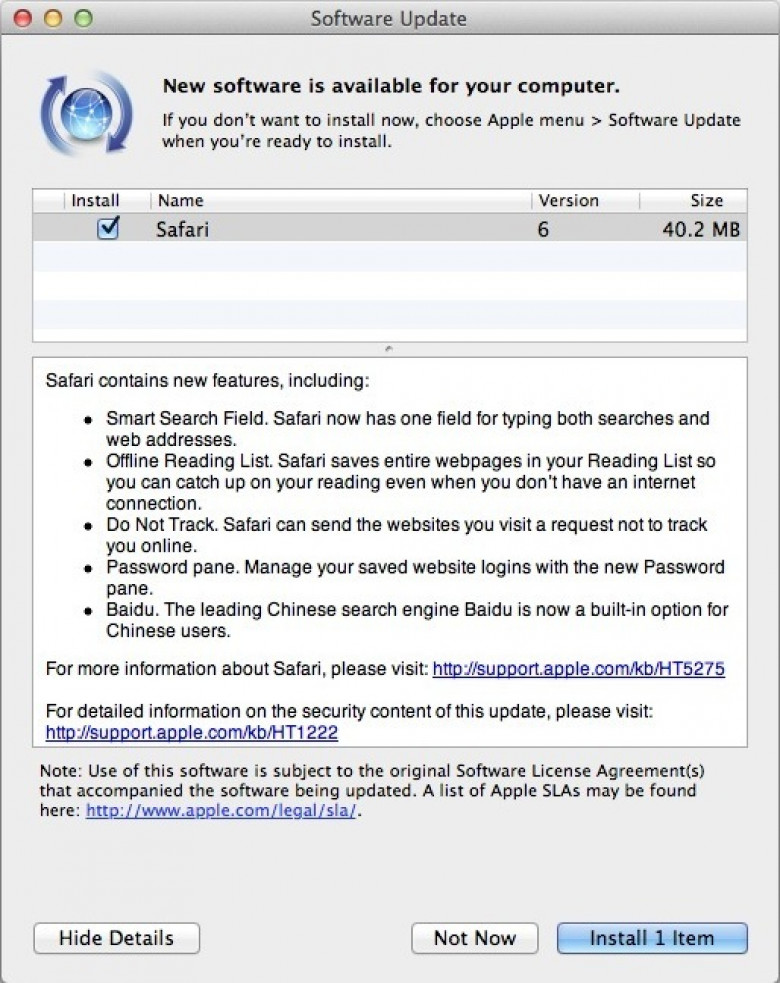Safari 6 addresses numerous security vulnerabilities
Alongside the release of OS X 10.8 Mountain Lion earlier today, Apple has published version 6.0 of its Safari web browser for OS X 10.7 Lion, adding a number of new features and closing numerous security holes. According to the company, the major update addresses more than 120 vulnerabilities found in the previous 5.x branch. Among the holes closed are problems in the handling of feed:// URLs could have led to cross-site scripting (XSS) attacks or users' files being sent to a remote server. A bug in the autocomplete system used by Safari, which may have resulted in passwords being automatically inserted even when a site specifies that it shouldn't be, has been fixed, as has an XSS issue caused by opening maliciously crafted files on certain pages.
As usual, the majority of the problems fixed in the update were found in the WebKit browser engine used by Safari. These include cross-site information disclosure bugs, site URL spoofing problems, cross-origin issues, problems related to iFrames and over 100 memory corruption bugs that could be exploited by an attacker, for example, to cause unexpected application termination or arbitrary code execution. For an attack to be successful, a victim must first visit a specially crafted web site. Other WebKit-related bugs include the disclosure of memory contents, escapes from the browser's sandbox, history session handling problems, and an HTTP header injection issue.










































































